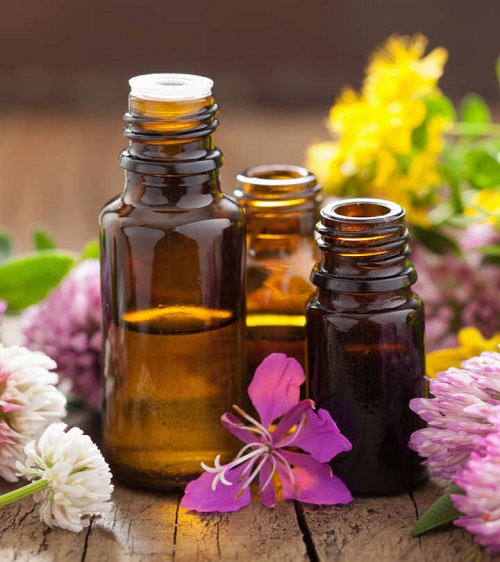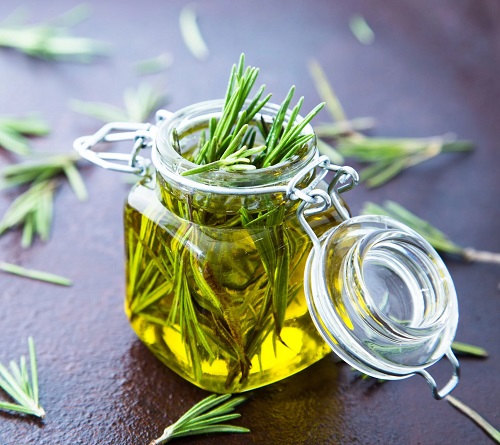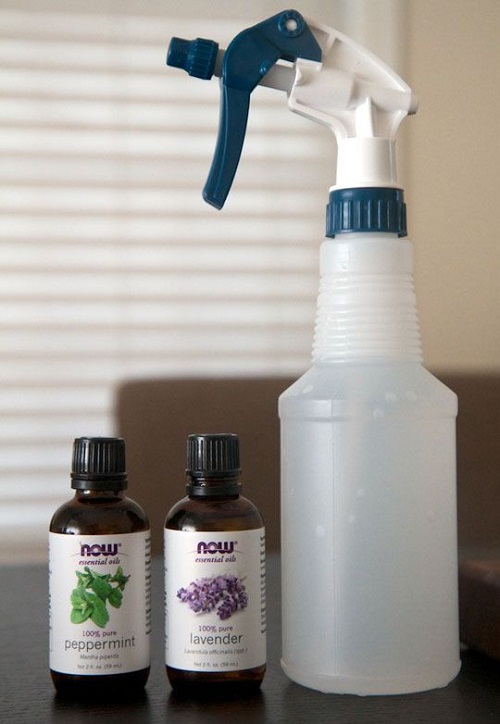Essential oils have several health and beauty benefits, but do you know about the essential oils that repel bugs?
Essential oils seem to have taken over the internet with their plethora of benefits. However, not many are aware of the various ways you can use them besides for personal wellness. They can even repel bugs and insects, making them a functional addition to your household!
Best Essential Oils That Repel Bugs
1) Rosemary
In addition to the myriad bugs that can disrupt our peace, mosquitoes are often crowned the most troublesome, especially when enjoying outdoor activities like hiking or relaxing by a lake. However, you can combat their nuisance effectively with rosemary essential oil. It turns out that mosquitoes naturally dislike rosemary.
Not only can this strategy keep the mosquitoes at bay, but the invigorating scent of rosemary can also leave you feeling refreshed and energized. It’s a perfect solution for maintaining your comfort and mood during outdoor adventures!
2) Thyme
If you are unaware, DEET is the oldest and the most active ingredient in commercial insect repellent. But thyme essential oil was proven to have such mosquito-repellent properties in one study that even surpassed DEET! And that’s not all.
This essential oil is also great for repelling chiggers and ticks because of the presence of compounds such as thymol, p-cymene, carvacrol, linalool, and alpha-terpinene.
Choose the linalool variety, which is labeled as “thyme ct. linalool,” because it not only has anti-inflammatory properties but is also gentler on the skin.
3) Citronella
Citronella, with its lemony/citrusy, grassy-floral scent, is yet another great essential oil for keeping away those pesky mosquitoes and fleas. Just remember that you will have to reapply it on yourself multiple times a day, more often than you would need to for a repellent that contains DEET.
A great way to keep bugs like cockroaches and moths at bay is by placing citronella-infused satches around your kitchen and closets.
4) Sage
The uniquely invigorating smell of sage, which most people describe as both healing and cleansing, also makes for an amazing repellent for bugs such as ticks, fleas, and chiggers.
Besides that, numerous studies have also revealed the antimicrobial and mood-enhancing properties of clary sage essential oil, making it an excellent one to carry with you as you go about your day.
5) Lavender
Synonymous with relaxation in the present hustle culture, lavender essential oil is unparalleled in its sheer number of benefits. From preventing insomnia to improving digestion, it also has the additional perk of warding off fleas, flies, mosquitoes, and ticks. A 2002 study proved its efficacy in warding off adult mosquitoes on hairless mice because of the chemical compound alpha-terpentine and insect-repelling linalool, similar to thyme.
Apply this oil to bite-sensitive areas of your body, such as ankles and arms, or rub it on a clean cloth and dab it onto the skin. Thanks to lavender essential oil’s antiseptic, analgesic, and antifungal properties, your skin will be calm and soothed.
6) Peppermint
Behold! You have found the holy grail of insect-repelling essential oils. Keep peppermint essential oil in satches or spray near the entry points of your home to repel a range of pesky insects, including spiders, ticks, roaches, fleas, flies, moths, ants, and beetles. The most abundant compound in peppermint oil is menthol, which doubles as a coolant for your skin and also as quite an effective mosquito-repellant.
When applied topically, a study found that peppermint oil provided 100% protection against mosquitoes for over 2 hours! Don’t forget to dilute it with a carrier oil, though.
7) Lemon Eucalyptus
The Centers for Disease Control and Prevention has recommended lemon eucalyptus oil as an active ingredient in insect repellents, as it naturally contains high amounts of bug-repelling citronellal.
A 2014 study showed that a mixture of 32% lemon eucalyptus oil had a 95% protection rate against mosquitoes for up to 3 hours. Due to the presence of trace amounts of para-menthane 3,8 diol (PMD), this oil also does not evaporate quickly and has been thus approved as the only plant-based mosquito-repellent by the CDC for high-risk areas. Do not use this essential oil on children under 3 years of age.
8) Geranium
Geranium essential oil is high in the concentration of its constituent geraniol, which is also abundant in essential oils like lemongrass, rose, and citronella. If you’re going to be engaged in outdoor activities for 2 to 4 hours, the geranium essential oil is one of the best ones to repel mosquitoes.
However, if you have sensitive skin, you should exercise caution when using this oil topically.
9) Cinnamon
Sure, cinnamon reminds you of topping up applesauce or oatmeal, but cinnamon essential oil can kill off mosquito eggs, too! Acting as a repellent against adult mosquitoes, more specifically, the Asian tiger mosquito, you must dilute this oil into a 1% solution before using it on your skin.
Not to mention, you can spray it around your house, too, against clothes and upholstery to keep the nasty mosquitoes at bay.
10) Greek catmint
A member of the mint family and a close relative of catnip, greek catmint oil is actually extracted from bruised leaves instead of its white and pink flowers.
One study found that it is effective in keeping away mosquitoes for up to 2 or 3 hours. That’s your cue to plan your outdoor activity for the weekend!
11) Tea tree
Quite popular in Australia, tea tree oil or melaleuca oil not only has antiseptic, antimicrobial, and anti-inflammatory properties, but studies also suggest that it may be quite an effective bug repellant, especially against bush flies, mosquitoes, and biting midges.
12) Neem
Though neem oil is lauded as a natural alternative to commercial bug repellents, questions have been raised about its efficacy. One 2015 study in Ethiopia stated that neem oil had a protection rate of 70% against mosquitoes for about 3 hours.
Remember to use extra virgin, cold-pressed neem oil and, of course, dilute it before use. Also, note that it may not be completely effective in high-risk places for mosquito-borne diseases.
13) Basil
Though mostly used for culinary purposes (and an essential pizza topper), the basil herb has way more practical applications than that! Play the presence of compounds like cinnamate-linalool, geranial, and geraniol to your advantage as you use basil essential oil to repel and protect against mosquitoes.
Though research is somewhat lacking, studies say that these compounds may affect the olfactory receptors of mosquitoes, inhibiting their ability to repel and bite humans.
How to Use Essential Oils To Repel Bugs?
- Before you rub those essential oils onto your skin, remember they’re pretty strong! Mix them with a carrier oil like coconut or jojoba. A good rule of thumb is adding 6-10 drops of essential oil to each ounce of carrier oil. This way, you get all the benefits without any irritation.
- If you want to keep bugs away indoors, add a few drops of essential oils to your diffuser. It spreads the scent around the room and creates a bug-repellent vibe. Plus, it smells amazing!
- Grab a spray bottle, mix some water with a few drops of your favorite essential oils, and shake it up. Spray it around doors, windows, and even on your linens. It’s great for keeping bugs out and freshening up your space.
- Apply a diluted mixture of essential oils to your pulse points or any exposed skin. It’s especially handy for warding off pesky mosquitoes and ticks. Just dab it on and enjoy your day without the bug bites.
- Remember, natural repellents can fade faster than chemical stuff, so you might need to reapply every few hours, especially if you spend the day outside. Keeping a small bottle handy for reapplications can be a lifesaver.
Precautions to Follow
- Certain essential oils are highly concentrated, so conduct a patch test and wait about 24 hours for a reaction before you use them topically, especially on sensitive skin.
- Buy essential oils registered with EPA as proven repellent so you know that they will work.
- Essential oils alone will not be enough to protect you in high-risk areas of mosquito-borne diseases like malaria, dengue, and more.
- Always read the labels and instructions carefully before using any essential oil on children.



